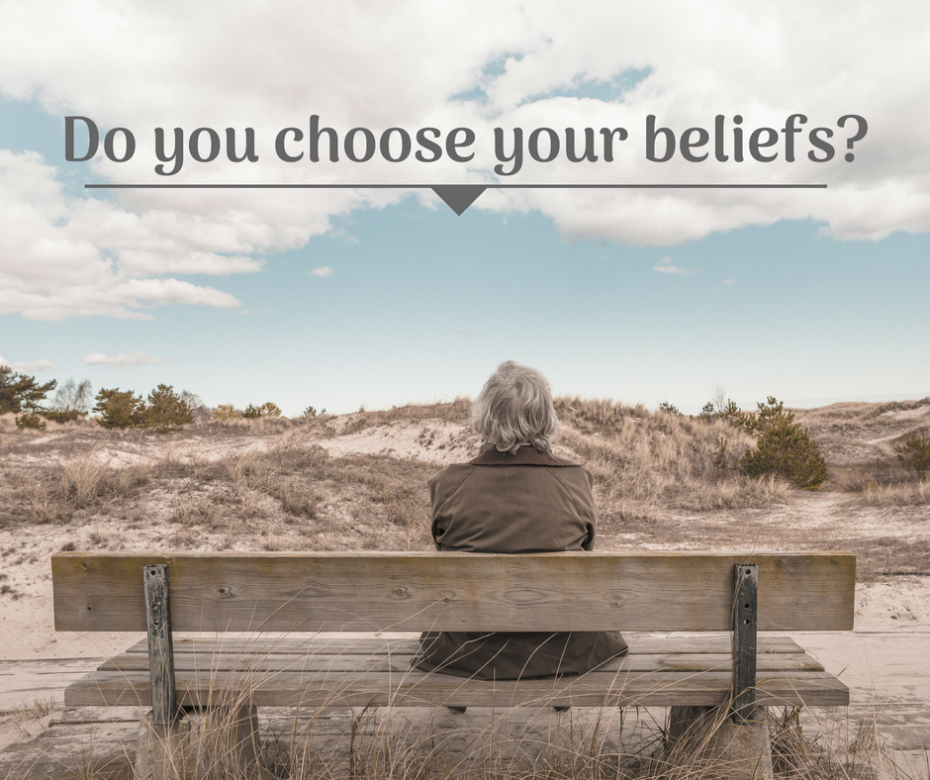Free Grace is sometimes dismissed as a form of “decisionism.” That’s a mistake because faith is not a decision.
Not everyone in Free Grace circles agrees with that. Some claim they can choose their beliefs.
The idea that you can choose your beliefs is called doxastic voluntarism. There are “direct” and “indirect” versions of it. If the more philosophically inclined among you want to read up on it, there is an introductory article here.
I don’t believe we can directly choose our beliefs, but we can indirectly influence them through other choices we make. Instead of summarizing the problem for you, let me point you to three quotes to help get you oriented to the issue:
“To require that cognitive agents attend to the processes of belief formation, maintenance and revision might make it sound as if we are wholly at liberty with respect to what we believe, that what we believe is under our direct voluntary control. But surely this is false. Which of us can by sheer effort reject the belief that the earth is round or accept the belief that our bank account contains millions more dollars than its actual balance? Beliefs aren’t subject to our direct control in this way. Typically we don’t decide what to believe, but rather find ourselves believing as we do as a result of various life experiences, early training, the testimony of authorities, other forms of social conditioning and so forth, long before we come to think critically about the sources of our beliefs. If most of our beliefs come to us unbidden, how then can I say that we should preside over our accepting and rejecting beliefs?
“While it is true that we do not exercise direct voluntary control over what we believe, we can influence the processes of belief formation, maintenance and revision indirectly. We can, for instance, voluntarily commit ourselves to a course of study that will eventuate in our coming to accept new beliefs. We can note tendencies we might have to believe with undue readiness unflattering statements about people we don’t like, or to discount unfairly the criticisms of those who disagree with our preferred ways of thinking about a subject; we can then undertake disciplines that will loose the power of tendencies have to affect the way we believe. We can, as behavioral psychologists often recommend, voluntarily commit ourselves to courses of action—volunteer work in the inner city, for instance—that will change the way we think about, say, matters of race and interpersonal relations. Generally speaking, then, the control we exercise in forming, sustaining and rejecting beliefs is indirect, brought about either by working on good habits of mind or by engaging in behaviors such as investigating a body of evidence, undergoing experiences of various sorts, or considering the opinions of others, and so forth (Wood, Epistemology, pp. 28-29).
Hugh McCann, another philosopher, agrees:
“I do not mean to suggest by this that we have direct voluntary control over our beliefs. Almost certainly we do not. But we can reject a conclusion in the sense that we refuse to acquiesce in believing it, continue to search for reasons to the contrary, conduct ourselves as though it were false, etc.—and such measures can influence our beliefs indirectly” (McCann, Creation and the Sovereignty of God, p. 238, note 20).
And finally, here is J.P. Moreland and William Lane Craig:
“Doxastic voluntarism is a controversial thesis, but it is important to keep in mind that it does not mean one has direct, immediate control over one’s beliefs. If someone offered you a million dollars to believe right now that a pink elephant was in your room, you could not do it if you wanted to. People’s beliefs usually just come to them. Upon looking at a red object, one simply finds himself believing it is red. Nevertheless, one could still have indirect control over a belief. Perhaps people cannot directly change their beliefs, but they may be free to do certain things (e.g., study certain evidence and avoid other evidence) to move themselves to a position to change their beliefs” (Moreland and Craig, Philosophical Foundations of a Christian Worldview, p. 87).
In sum, while you do not choose your beliefs, you can choose to put yourself in a better or worse position to acquire true beliefs.
What does that mean for you? It is a reminder that, in a world of fake news, as good Bereans, we need to be on guard against error, and always open to the truth, so that when we find it, we’ll believe it.


